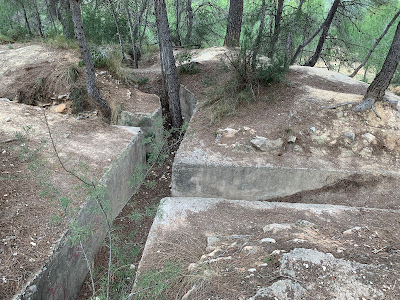It’s been a curious experience, turning 70, as I did this week.
It’s a bit of a milestone. The aged inhabitant of the little village of irreducible Gauls in the Asterix stories is called ‘Agecanonix’ in French. That’s based on the notion of canonical age, although it misapplies it, since canonical age is the age specified by Catholic canon law, and it’s different for different things – like when you can first go to confession (ridiculously young – seven) or receive confirmation (twelve).
 |
| Sprightly but no spring chicken Agecanonix, or Geriatrix to his English-speaking fans |
In the English versions of the Asterix books, Agecanonix is renamed Geriatrix. That’s probably more accurate. On the other hand, it’s a bit galling. I know that ‘geriatric’ just comes from the Greek for ‘old age’, but in my mind its connotations are all about decrepitude. Others may think that notion applies to me, but whether it’s simple denial or not, I refuse to apply it to myself.
On the contrary, I feel it’s a bit of a breakthrough to have reached 70. After all, if that’s the allotted span, then as of this birthday, I’ve been enjoying time added on. A bonus. Which is a good thing, right? After all, doesn’t ‘bonus’ mean ‘good’?
So I’ve started on my bonus time. I completed my seventh decade, my allotted span, as my birthday dawned. Then I started on my seventy-first. Which puts me ahead of the game.
Tom Lehrer once announced, “it is a sobering thought that when Mozart was my age, he had been dead for two years”. It’s an even more sobering thought that by the time Mozart reached my age, he’d been dead for as long as he’d lived.
I suppose a rather less agreeable sense in which I’ve gained some additional years is with respect to my father, Leonard. I’ve now lived nearly nine years longer than he did. More to the point, it is approaching forty years since he died. I do keep thinking how much he’d have liked visiting us here in our home near Valencia. I can imagine he’d have found it very much to his taste. It would have been fun to have him join us for my birthday, though he would have had to make it to 101 to pull off that trick.
As for my mother, I have a long way to go to catch her, and it would surprise me if I did. Of course, it wouldn’t surprise me if I didn’t – I assume that not catching up with her would leave me in a state incapable of surprise. She managed the neat trick of splitting the difference between her mother and grandmother.
Blume, my great-grandmother, got out of Vilnius to escape Russian oppression – and, boy, don’t we know about Russian oppression today – and lived, as a Jewish immigrant to England, until she was 97.
My grandmother, Yetta, made it to 91.
And my mother, Leatrice, neatly bisected them. She reached 94. And, as I’ve mentioned before, cleverly made it to her own birthday before shuffling off this mortal coil.
The big question is which side of the family do I pull towards? Time alone will tell.
Meanwhile, we made an excellent celebration of the day. One of our sons, Michael, was with Danielle and me. He too will be celebrating a birthday with a zero in it – his fortieth – in a couple of days’ time. He’s decided he wants to go to our local cheap but immensely cheerful local Chinese for dinner, followed by drinks at our local curious but immensely cheerful Irish pub next door. That should be fun.
For my birthday, we all three went to the local restaurant I like the best, Vaixell, which means ‘little boat’ in Valencian. The cooking is wonderful, the setting delightful. And, it turns out, they were running a four-day truffle fest – it seems it’s the season – so we had truffles with every course, of which there were four, including the dessert which was a truffle (in the chocolate sense), including truffles (in the other sense).
 |
| Celebrations. Note that I wore grey, so our hair wouldn't feel lonely |
We had a great time. It struck me as a fine way to enter my 71st year. And just the kind of celebration we needed.
After all, there was plenty to celebrate. One of my favourite Spanish authors claims that the thing about old age isn’t to complain about it, but to be glad you made it.
Or, putting it in other words, the only way to avoid growing old is to die young. And, having reached 70, it’s clearly far too late for me to do that.
Which, in a way, is a relief, isn’t it?

































